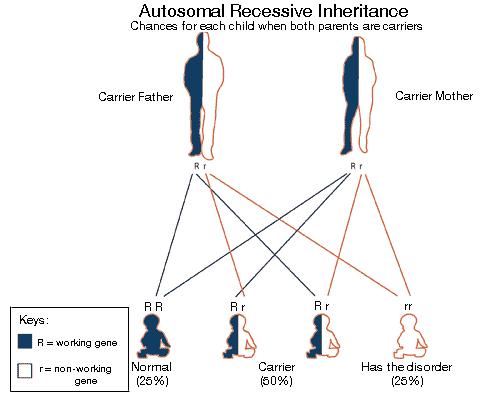
What happen when CH is treated?
Children with CH who start treatment soon after birth usually have normal growth and intelligence and can live typical and healthy lives. Some children, even when treated, have problems with school work and may need extra help. Some may have delayed growth compared to other children their age.
If treatment is not started until several months after birth, delays or learning problems may occur. The level of delay varies from child to child.
How do I know if my child's CH is inherited?
About 80 to 85% of the time, CH is caused when the thyroid gland does not develop at all, is misplaced, or is too small. Most of the time, these cases are not thought to be caused by inherited factors.
In about 15% of cases of CH, the thyroid gland appears normal but the amount of thyroid hormone made is reduced. These cases are more likely to be inherited, but not always. If an inherited form of CH is suspected, you may be referred to a genetic doctor or genetic counselor to determine whether the CH is inherited.
Most of the hereditary types of CH are inherited in an autosomal recessive manner. This type of inheritance affects both boys and girls equally. In children with autosomal recessive CH, a specific pair of genes is not working correctly and too little thyroid hormone is made. These children inherit one non-working gene for the condition from each parent. These children have a normal appearing thyroid that is in the correct place in the neck but does not make enough thyroid hormone.

In very rare cases, CH may be inherited in a different way, either by an X-linked recessive or autosomal dominant gene. If your child has one of these rare inherited types of CH, your genetic counselor or genetic doctor will explain how it is inherited and who else in the family may have a chance to pass on the gene for CH.